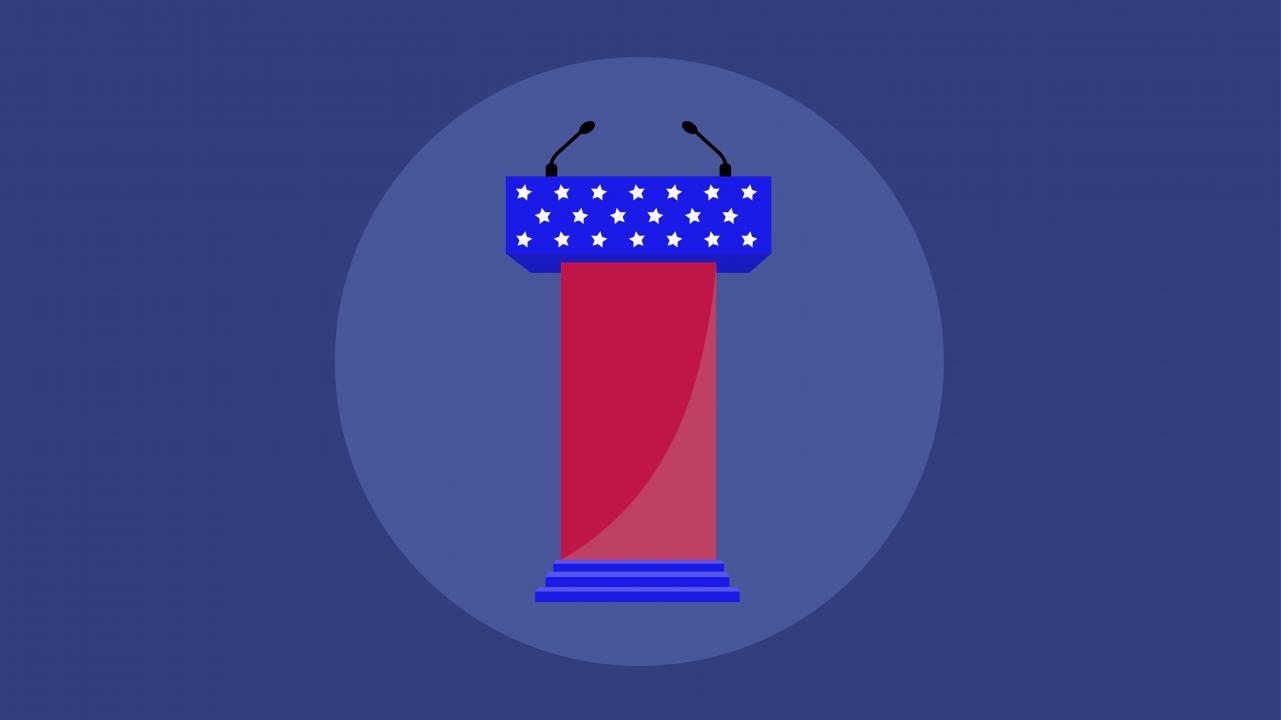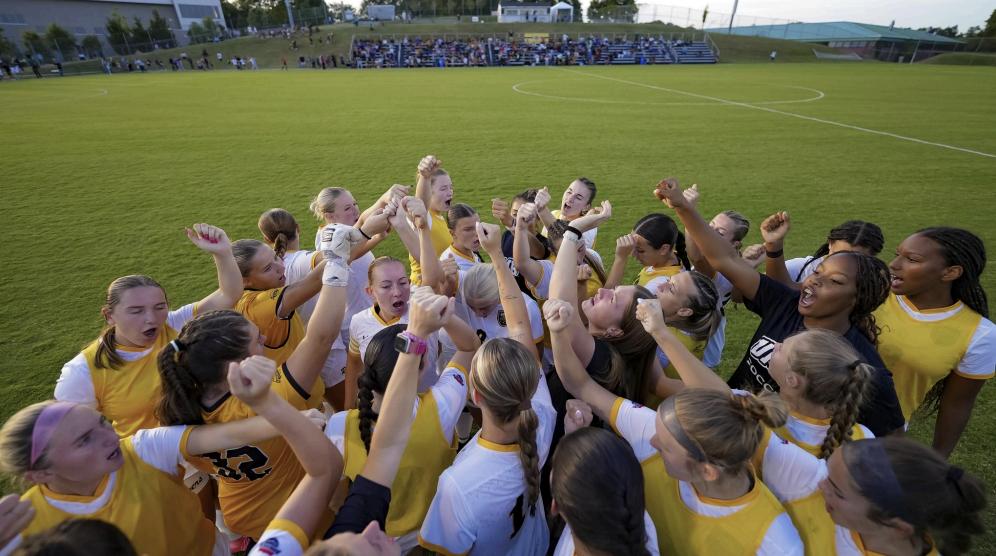President Donald Trump and former Vice President Joe Biden took to the stands on Tuesday, Sept. 29 for the first Presidential Debate of 2020 in Cleveland, Ohio. Out of all the questions asked by Moderator Chris Wallace, University of Maryland, Baltimore County students are particularly concerned about the reopening of schools, Blacks Lives Matter protests, police reform and the opioid epidemic.
On the topic of reopening schools, Biden stated that “opening schools costs a lot of money” and that our current president should “go in the Oval Office and bring together Democrats and Republicans and fund what needs to be done to save lives.”
While the Trump administration has pushed for states to open schools “as is,” Biden said schools need to be provided with the proper funds for sanitation and personal protection equipment to reopen safely. He stated that Trump will not do this because he is not considering it a national emergency.
Junior applied statistics major and UMBC College Republicans Secretary Corey Shulman says a middle ground between the approaches of the presidential candidates is best. Shulman believes Maryland Governor Larry Hogan found this middle ground and handled the reopening of schools in a good way, allocating funds when necessary.
“I do agree we need to get back in schools, but it shouldn’t be brash or fast. The way [Hogan] has handled COVID in my opinion, he’s done a phenomenal job in setting an example for the nation,” said Schulman.
Junior computer science major and UMBC College Democrats President William Lazer disagrees with both candidates’ plans to reopen schools. To Lazer, there is no way to truly make schools safe for students to attend.
“The phrase ‘safely reopening’ is an oxymoron. Schools are indoor spaces, poorly ventilated, in which people sit in close proximity for 45 minutes at a time, only to then shuffle around to another room with new people for another 45 minutes, and so on,” said Lazer. “Masks are awesome and everyone should wear them, but they’re not enough to make schools safe, and student compliance (or lack thereof) would be a major issue. Reducing density would help, but that doesn’t solve the ventilation problem.”
In addition to the concern about safely attending in-person classes, many students are angered by the lack of accountability of police officers and the justice system in America. Wallace addressed this anger, asking Biden whether he believed there is a “separate but unequal system of justice for Blacks in this country” in light of the Breonna Taylor case.
Biden said that he does believe there is systemic injustice, but he stated that the “vast majority of police officers are good, honorable men and women” with some bad apples that have to be held accountable. Biden went further to state that he is against defunding the police, clarifying that he is in favor of police reform through the addition of psychiatrists within law enforcement and the localization of law enforcement.
Trump responded by saying that Biden would lose his voter base by not wanting to defund the police and by supporting law enforcement.
Dr. William Blake, an assistant professor of political science at UMBC, does not believe that Biden’s voter base took a hit due to Biden’s comments.
“The more progressive wing of the Democratic Party is too worried about Trump winning the election to abandon Joe Biden, even though they may disagree on many policies,” said Blake.
While Lazer believes Biden’s unwillingness to endorse Medicare for All and defunding the police hurts him with the more left-leaning part of the Democratic party, overall he agrees with Blake.
“I think anyone on the left who heard Trump fail to denounce white supremacy [and] say he won’t accept the election results if he loses and present no plan to fight COVID while denying his role in making it worse will come away from that more likely to vote for Biden, not less,” said Lazer.
In answering similar questions about law enforcement, Trump discussed the ongoing, country-wide Black Lives Matter protests and compared them to similar protests prior to 2016, stating that “during the Obama-Biden administration, there was tremendous division and hatred.” According to Trump, the protests in Ferguson, Oakland and Baltimore under the Obama-Biden administration were “more violent than what we are seeing now.”
“Trump’s debate reference to Baltimore, a majority African American city, needs to be understood in concert with his refusal to condemn white supremacy,” said Blake. “No president in decades has tried to use racist rhetoric as a tactic to win votes. As Republican members of Congress have made clear in the days since the debate, this language was abhorrent.”
Senior biochemistry and molecular biology double major and UMBC College Republicans President Isaac Abiye had a different outlook on Trump’s comments.
“I don’t think whoever is in office is responsible, at least directly, for events that occur,” said Abiye. “With each event that occurs there is going to be a large volume of people that want to demonstrate what they think needs to be done through peaceful protests, and of course bad apples will take that opportunity to cause riots to damage neighborhoods. For either candidate to blame an administration is just politics in my opinion.”
While not meaning to bring up the opioid epidemic running through cities across the U.S., Trump touched on the drug crisis, saying “A lot of people, between drugs and alcohol and depression, when you start shutting [the country] down, you take a look at what’s happening at some of your Democrat-run states where they have these tough shutdowns.”
According to the Opioid Operational Command Center of Maryland, intoxication-related deaths from all drugs and alcohol increased slightly during the first quarter of 2020 compared to the first quarter of 2019. The OOCC also saw opioid-related deaths increase by 2.6 percent.
Students agreed with Trump that these issues are linked to the pandemic, but they did not necessarily agree that they were tied to politics.
“It’s definitely not a political issue, it’s something that needs to be done whether a politician has a D or an R next to their name. There are solutions that have been proposed but not many that are being implemented,” Abiye stated.
“I do believe there is a correlation between COVID, the lockdowns, shutdowns and people not being able to work with drugs and alcohol increasing. Just last month, one of my friends passed away from an overdose. One of my other friends also passed away from an overdose, both not having a job, depressed, wanting to do something with their lives and not able to be productive,” said Stein.
With the candidates spending the majority of the debate interrupting each other, students await the next presidential debate to hear them go more in-depth on their policies regarding policing, the COVID-19 pandemic and the opioid crisis.
Written by Kylie Potter (kpotter2@umbc.edu)

